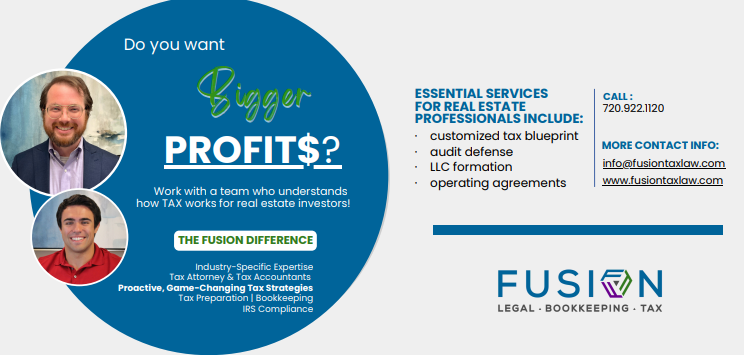Exploring Real Estate Investor Deductions for Attending Educational Seminars
As a real estate investor, staying ahead of the game with industry trends, strategies, and insights is paramount to your success. One effective way to gain knowledge and network with like-minded professionals is by attending educational seminars.
Not only do these events provide valuable educational opportunities, but they can also offer tax benefits in the form of deductions. As a tax professional who works closely with real estate investors and professionals, I see a lot of confusion on this topic and hope that this will help clear it up.
- Educational Criteria:
To claim tax deductions related to educational seminars, you must ensure that the event is directly related to your real estate investment activities. The Internal Revenue Service (IRS) allows deductions for seminars or conferences that maintain, improve, or enhance your professional skillset in the real estate investment field. It should directly contribute to increasing your knowledge and ability to generate income from your real estate investments. It should not, however, teach you a new set of skills. Seasoned investors, therefore, can typically deduct these costs while new investors cannot.
- Tight Nexus to Income-Generating Purpose:
In addition, the educational expenses need to be relevant to the activity that is generating income. I once handled an audit where the taxpayer was trying to deduct life coaching lessons as a business expense. The taxpayer argued that the life coaching was business related because the lessons and methods learned for his personal life spilled over into the business and impacted business operations.
The IRS conceded that this could be the case, but that not all the cost of the coaching event was business-related. We produced a calendar of events, and the proportion of cost that could be applied to business-specific programming was deemed deductible while the remainder was a non-deductible personal expense.
- Deductions must be Reasonable:
Reasonability is a key factor when it comes to deducting expenses for tax purposes. In other words, the expenses must be considered reasonable within the context of your industry and your specific income-generating activities of your business and cannot be lavish or extravagant.
To determine the reasonability of an expense, the IRS considers factors such as the nature of the expense, the industry standards, and the general expectations of a prudent businessperson. For example, if you are a real estate investor, it would not be considered reasonable to deduct the costs of luxury vacations as business expenses, even if you attended educational seminars while on vacation. However, deducting expenses for attending educational seminars or industry conferences directly related to your real estate investments would be seen as reasonable and necessary.
Ultimately, reasonability is about ensuring that the expenses you claim as deductions align with the standard practices and expectations of your industry. It is crucial to exercise caution and discretion, keeping thorough records and documentation to support your deductions in case of an IRS audit.
- Deductible Expenses:
With the foregoing running in the background, when attending an educational seminar related to your real estate investment activities, you can deduct a range of associated expenses from your taxable income. These deductible expenses may include:
a. Registration Fees: The cost of registration for the seminar is typically fully deductible. This includes any fees paid for admittance to the event, workshops, or conference sessions.
b. Travel and Accommodation: If the educational seminar requires you to travel, expenses such as airfare, lodging, meals, and local transportation are potentially deductible. However, the deduction is limited to the time spent attending the seminar, rather than personal sightseeing or recreational activities.
c. Materials and Resources: Any books, manuals, educational materials, or specific resources necessary for the seminar can be deducted. Be sure to keep receipts or records of these expenses as documentation for your deduction claims.
3. Networking Deductions:
In addition to the educational aspects, attending seminars often involves networking opportunities with other real estate professionals. Expenses incurred during networking and social activities may also be deductible if they occur directly before, after, or during the educational event.
However, it is crucial to exercise caution and comply with IRS rules regarding these claims. Keeping records and documenting the business conversations or meeting topics is essential when making deductions for networking expenses. I typically advise keeping a list of the who, what, when, where, and why of the expense and how it relates to business/income-generation.
4. Documentation and Record-keeping:
To substantiate your deductions, it is crucial to maintain accurate and thorough records. Retaining copies of receipts, invoices, and registration information will provide the necessary documentation to support your claims should you be audited by the IRS. Furthermore, keeping detailed notes about the topics covered during seminars and workshops can also be helpful in demonstrating the direct relationship of the educational event to your real estate investment activities.
Conclusion:
Attending educational seminars as a real estate investor not only allows for knowledge and skill enhancement but also provides potential tax deductions. By keeping a close eye on your expenditures and meeting the criteria set by the IRS, you can significantly reduce your tax burden. Ensure you maintain proper documentation of expenses and determine the eligibility of networking activities as deductions to maximize benefits.
When in doubt, it is wise to consult a tax professional to help you decide. Working with experienced tax advisors who specialize in helping real estate professionals will help to ensure good discernment for maximizing deductions while claiming them properly. Utilizing these deductions can ultimately enhance your overall real estate investment strategy and financial success.


